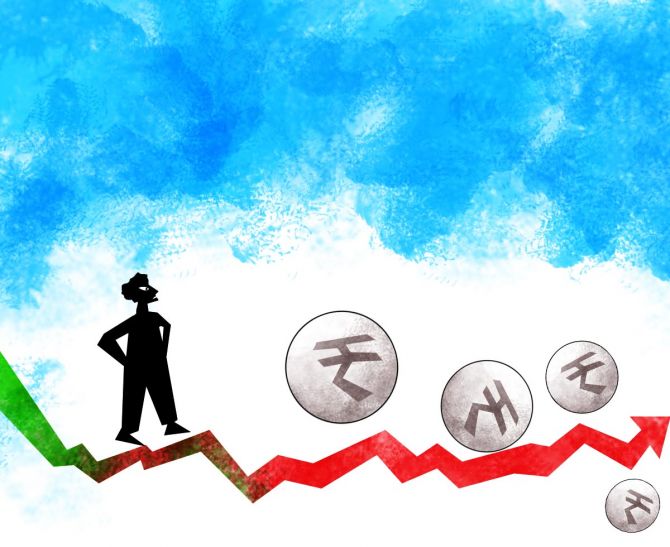'As we expect the economy to continue to grow above the trend line, we expect capex decisions to be taken next year when there is more certainty about the cost of funding and the economy.'

With the latest retail inflation in the US coming in at over 9 per cent, ahead of the Federal Reserve meeting, Venugopal Garre, managing director at Bernstein, tells Puneet Wadhwa/Business Standard that the FII outflow from India will be lower in the second half of 2022, as certainty emerges on the extent of global macro weakness.
Will the markets see a sell-off every time policymakers at the US Fed meet, or have they digested the likelihood of sharper rate hikes?
This pattern may not repeat to the same extent every time, especially if the inflation trajectory pans out as expected.
Only if inflation accelerates further or persists owing to continued strength in demand or supply chain challenges, will there be a concern about the extent of a rate hike or quantum of the rate hike.
Otherwise, the market is expected to be less sensitive to the Fed meetings in the second half of 2022.
The focus will also be on the further acceleration in quantitative tightening (QT) from September and how that may influence various markets, including equities.
Some experts believe the Fed is likely to change its tone later this year, especially after the mid-term polls in the US are over.
Is the hike in rates as much a function of political pressure as pure economics to tame inflation?
We are not in the camp of politics driving these decisions, as the problem at hand is essential to resolve, else it will have a significant impact in the future.
Inflation containment requires both demand-side moderation and supply-side resolutions.
As not much can be immediately done on the supply side, demand-side measures until they drive the desired outcome will be required.
So, from a quantum or timing point, the large hikes being executed now are more of a catch-up.
These should have commenced a few quarters back in the US.
We see pure economics driving these decisions.
What has been your strategy amid the market rout?
From an emerging market (EM) context, we have downgraded India to a range-bound view.
The broader change in perspective was driven by the expectation of overall moderation for equities and hence, limited room for alpha generation.
It was not much about other markets in terms of weight.
Except for heavier valuations, we do not see India as unfavourably placed relative to other EMs.
We expect GDP growth to moderate, but still stay above the trendline.
In addition, less reliance on exports also helps, especially when there is an orchestrated attempt to drive down global growth.
Can you explain your stance on India?
We still see a range-bound market but have lowered the range to 13,500-16,000 for the Nifty50.
There is less room for the market to breach the lower end of the range, though it is expected to breach the upper end from time to time, especially as the inflationary concerns ease and the rate cycle heads closer to a peak.
Our broad market range is built on an expectation of low-teens growth for index earnings.
With the extent of earnings risks lower than during the global financial crisis, a weaker backdrop of GDP limiting excesses in the economy and a careful financial ecosystem reduce the chances of a deep and prolonged crisis.
We, however, currently don't see the correction as being intense enough to create room for a large absolute return over a short period.
From a sectoral context, we prefer financials, telecom, and IT services over consumer discretionary and commodities.
We downgraded small-and mid-caps last year, and since then, there has been no change in this view.
What's the road ahead for FII flows into the Indian markets?
The quantum of outflows has already been very high, even from a historical context.
Outflows will be lower in the second half of 2022, as certainty emerges on the extent of global macro weakness and the impact of QT overall.
There is a further acceleration in QT quantum from September, and the effect needs to be watched.
The government is hoping that capex plans and implementation will help revive the economy.
Why will the companies undertake capex at a time when global central banks are out to kill demand to tame inflation? A flawed policy, you think?
The government needs to lead capex through the acceleration of ongoing programmes despite some of the burden of crude oil that it has taken on its balance sheet.
Capex decisions from the private sector will get postponed, as the environment is still not good enough to accelerate new projects.
High rates and concerns about the economy are the key drivers for that.
This is, however, more of a challenge for this year.
As we expect the economy to continue to grow above the trend line, we expect these capex decisions to be taken next year when there is more certainty about the cost of funding and the economy.
Feature Presentation: Aslam Hunani/Rediff.com











